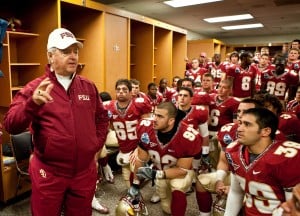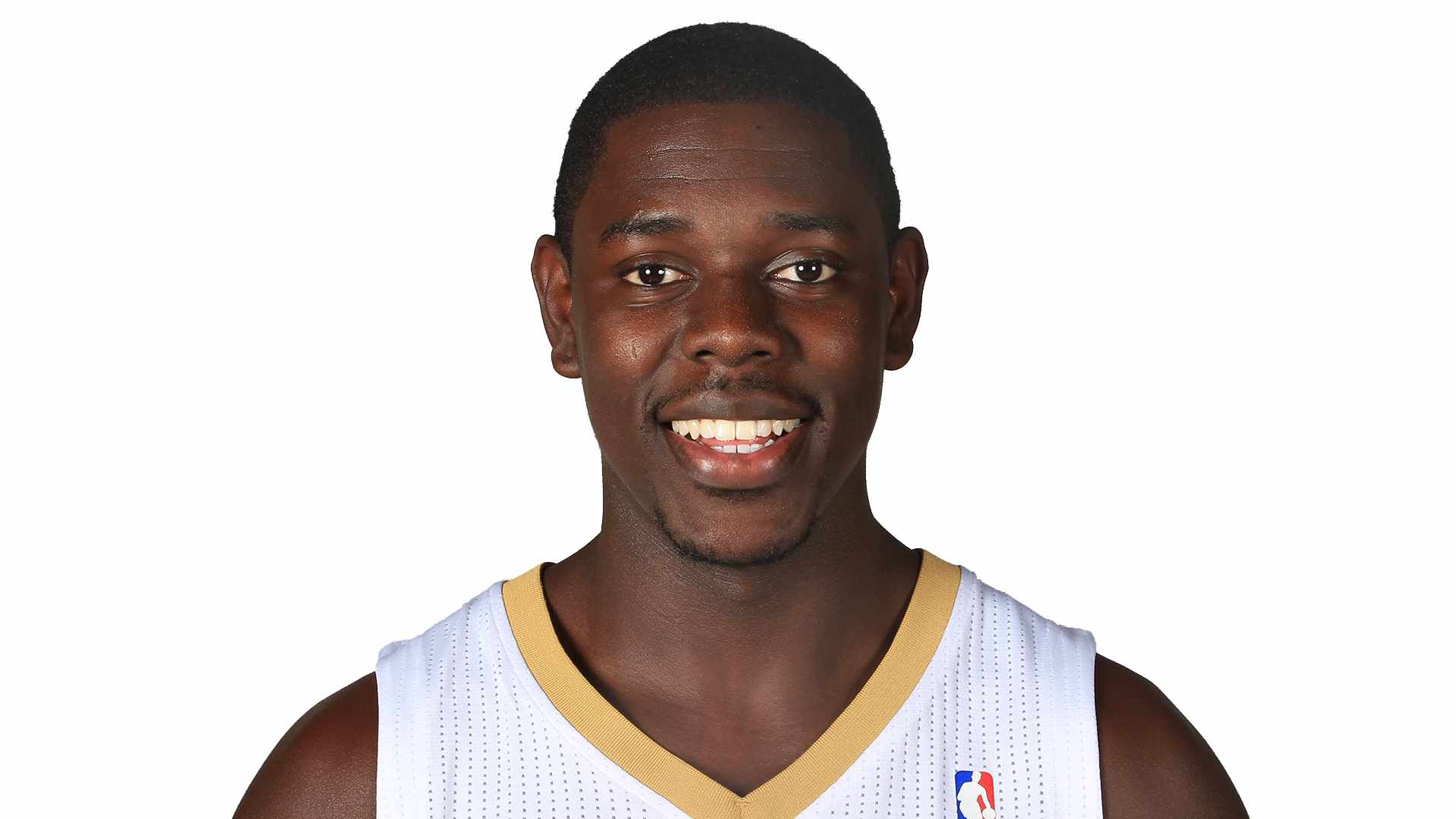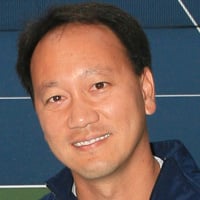 With the 2013 U.S. Open heading into its final weekend, it seems appropriate to check in with one of America’s great tennis champions. It’s been a decade since Michael Chang competed amongst tennis’ elite, but his impact on the sport has never subsided.
With the 2013 U.S. Open heading into its final weekend, it seems appropriate to check in with one of America’s great tennis champions. It’s been a decade since Michael Chang competed amongst tennis’ elite, but his impact on the sport has never subsided.
From his upbringing as the son of Chinese immigrants to his small stature, Chang defied the odds every time he stepped foot on a tennis court. In addition to his remarkable 1989 win in Paris at the record-breaking age of 17, he earned 34 combined singles titles and was inducted in the International Tennis Hall of Fame.
Off the court, Chang has founded the Chang Family Foundation and the Christian Sports League, both based in Southern California. He is also an active participant in the ATP Legends Tour. In this Inspiring Athletes interview, Chang talks about his unique upbringing, his famous run at the 1989 French Open and how being an outspoken Christian is more difficult in the tennis world:
Bonham: How was your entry into the tennis world different than most other players?
Chang: I started playing when I was seven years old, but my mom was the first one to get the family interested in tennis. My dad picked it up after that and we’d watch him play in quite a few company tournaments. From there it turned into a family affair. I would play on weekends and then I started playing in some junior tournaments. Before we knew it, I was playing in national tournaments and that just took it to a whole new level. I’d never thought about turning professional or anything like that. If anything, my mom and dad were thinking that maybe it would be nice for my brother Carl and I to get a college scholarship or something.
Bonham: Why did you deal with so much skepticism early on in your career?
Chang: I wasn’t the biggest guy out on the tour. I was 5-9 in shoes and I got quite a bit of criticism when I first came out and turned professional. One of my biggest critics was Arthur Ashe. He was someone who I greatly respected as both a tennis player and a humanitarian. He, along with other people, criticized me for turning pro. At the time, it wasn’t the normal route to go. I turned pro a little before my 16th birthday. The normal route was to go to college and play at least a year or two there and then turn pro. But I had an opportunity to turn pro earlier because I had done really well in the juniors. As a 15-year old, I won the biggest national 18-and-under junior title in the United States. The winner gets a wildcard into the U.S. Open. I had the opportunity for a six-week period of time to play in four professional events as an amateur. I lost in the first round of one tournament. I lost in the second round of the U.S. Open. I got to the semifinals of another tournament and I won a Challenger event. I went from being unranked to being ranked 163rd in the world after just four tournaments. After those results, we started thinking about going pro. I got a letter from Arthur Ashe telling me what a big mistake that I was making. He thought I was too small. He said my serve wasn’t strong enough. We took that with a grain of salt and thought about the decision as a family and decided it was time for me to turn professional. That was one of the biggest criticisms I had to deal with before I even turned pro and at the time I wasn’t even a believer yet. It was not a good confidence builder for someone who was a great tennis champion to tell you weren’t good enough to play professional tennis yet. But once I got out there and started to play well, all of those criticisms started to take a back seat.
Bonham: Did you face any difficulties as one of the few outspoken Christians of your era?
Chang: I didn’t have any of my fellow players ever come up to me and give me a hard time for being a Christian. If anything, I think they actually respected me for it. But it was difficult because throughout my 16 years on tour, I probably could count on one hand how many Christian tennis players I actually came across. I’m not sure if that has to do with tennis being a very individual sport or whether it has to do with the players being on the younger side. I mean, golf is an individual sport, but they have Bible studies every week. So from that regard, it was difficult. What made it easier was that I always had at least one member of my family traveling with me which provided a great deal of fellowship and also an opportunity to pray together, to learn together and to grow together. I didn’t get a chance to go to church as much as I would have liked but I feel that God understood my situation. My Sundays were usually spent playing in a final or traveling to my next destination. But through listening to sermons and listening to music and fellowshipping with whoever was with me, God really taught us a great deal as a family about Him and who He is and what our purpose was out there on the tennis court.
Bonham: Talk about the interesting relationship you’ve had with Andre Agassi over the years and some of his surprising criticisms of you.
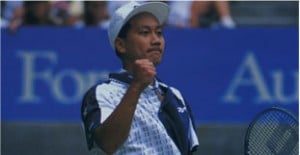 Chang: A few years ago there was a GQ article written about Andre Agassi. Somehow, he made some references to my Christian faith and he talked about what joke it was for me to practice abstinence until I got married. Understandably, in a men’s magazine, they’re going to jump all over that. They printed everything that Andre said. When the article came out, people would ask me how I felt about it. I would just explain to them that it was part of my Christian faith and it was part of my promise to my future wife. I was able to respond in a way that allowed me to turn a negative criticism into a positive opportunity to share my faith. I ended up getting a letter from Andre about a month later. He wanted to apologize for saying those things and committed to being more careful with his words in the future. Unfortunately, his book came out and he ripped me again for my faith and for thanking the Lord when I won.
Chang: A few years ago there was a GQ article written about Andre Agassi. Somehow, he made some references to my Christian faith and he talked about what joke it was for me to practice abstinence until I got married. Understandably, in a men’s magazine, they’re going to jump all over that. They printed everything that Andre said. When the article came out, people would ask me how I felt about it. I would just explain to them that it was part of my Christian faith and it was part of my promise to my future wife. I was able to respond in a way that allowed me to turn a negative criticism into a positive opportunity to share my faith. I ended up getting a letter from Andre about a month later. He wanted to apologize for saying those things and committed to being more careful with his words in the future. Unfortunately, his book came out and he ripped me again for my faith and for thanking the Lord when I won.
Bonham: Your 1989 French Open third round match against Ivan Lendl (that paved the way to the title) is perhaps the most famous of your career. What transpired that day?
Chang: Sometimes people look at that situation and they just see a match, but in many instances it was a lot more than that. It was an incredible life lesson from the aspect of perseverance and not quitting. The French Open wasn’t about Michael Chang winning it at 17. The French Open was really about God wanting a young Chinese boy to win a championship and put smiles on Chinese people’s faces around the world when they didn’t have much to smile about.
The match with Lendl is evidence of what God can do and (evidence of) His power. Certainly, being 17 I was not expected to win and I wasn’t expected to come back from two sets to love down and to do it against Lendl who was a three-time French Open champion. But God has His funny ways of showing His power and He has His funny ways of allowing the weak things of the world to shame the strong and allowing the ordinary things of the world to become extraordinary. One of those times was during that match.
The fifth set, I was dealing with the cramps that were fairly severe at certain points if I were to slide really hard for go up really hard for a shot. When it was 2-1, I thought about quitting. I thought it wouldn’t be so bad. I’d get a lot of pats on the back in the locker room and the press would say, “Great valiant effort, but bad luck that you lost.” And I thought, “You know, it wouldn’t be such a bad thing.” I mean, I wasn’t supposed to win under those circumstances anyway.
So I actually started walking towards the chair umpire and I got to about the service line and the Spirit just totally convicted me. It was interesting because, the first thought that came to my mind was, “Michael, what are you doing?” And I thought to myself, “Well, I’m going to default this match.” So the Spirit convicted me by kind of saying, “Michael, you’ve got to understand that the winning and the losing has never been your job to take care of. The winning and losing has always been God’s job to take care of. But your job has always been to go out there and compete and give one hundred percent.”
So I said, “Alright Lord. I’ll try to try to finish this match.” My primary goal was then finishing the match and not to worry about winning and losing and to trust Him for all of that. But I still knew I probably wasn’t going to win.
I started concentrating point by point. If I had opportunities to go for a winner, I would smack a winner and go for it. Then all of the sudden I started winning points and points started turning into games and before I knew it I had won the match. I go back sometimes and I look at that videotape and even after I’m done looking at it, I still can’t understand or comprehend how that match was won.
Bonham: When you credited Jesus for the ability to persevere, you took a lot of heat from the international press. Were you prepared for what followed?
Chang: My next three matches were played under conditions that I’ve ever experienced in my career. I’ve never had crowds literally boo me. When I walked onto the court and warmed up, they weren’t just rooting for my opponent, they were actually rooting against me. It was a really strange feeling and it happened the last three matches.
Bonham: How did that impact your relationship with the French fans beyond that tournament?
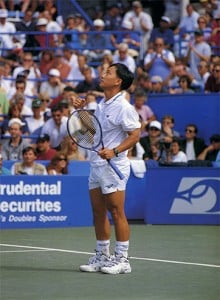 The subsequent years I went back to Paris after the French Open, I was greeted with boos and jeers. I called my dad after one of the matches and I said, “You know what dad, I don’t even want to come back to Paris and play again.” It just wasn’t fun anymore. It was the only place in the world where that was happening. I was sick and tired of it. And then my dad said, “You know what Michael? The Lord hasn’t called you to just play in the places where people love you and support you and treat you good. The Lord called you to be a tennis player because you’re a witness for Christ. It doesn’t matter what kind of response you get. What’s important is how you respond to it.”
The subsequent years I went back to Paris after the French Open, I was greeted with boos and jeers. I called my dad after one of the matches and I said, “You know what dad, I don’t even want to come back to Paris and play again.” It just wasn’t fun anymore. It was the only place in the world where that was happening. I was sick and tired of it. And then my dad said, “You know what Michael? The Lord hasn’t called you to just play in the places where people love you and support you and treat you good. The Lord called you to be a tennis player because you’re a witness for Christ. It doesn’t matter what kind of response you get. What’s important is how you respond to it.”
That really got my attention. Up to that point, I was so frustrated with the Parisian crowds. I would play my match and then bolt off the court. I didn’t want to deal with it. My dad challenged me to look at it from a different perspective. He challenged me to be Christ-like in my attitude. Over the next few years, the crowds began to change. I don’t know what happened. I still talked about my faith. I still talked about the Lord. I still signed my autographs “Jesus loves you.” I still did all those things, but I did it with a better attitude.
The last five years of my career, every time I went to Paris, they treated me like I was French. It was unbelievable. They would cheer for me as if I was one of their own. I got the royal treatment when I went to Paris. That happened because my dad challenged me and the Lord worked on my heart to have a different attitude toward the criticism that came my way.
